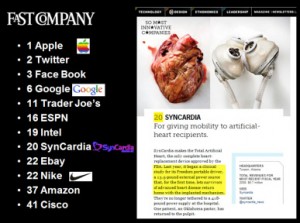
Watch SynCardia Success Stories here »
In 1982, the world became captivated by Barney Clark, who lived for 114 days after becoming the first recipient of the Jarvik-7 Artificial Heart. In the 1990s, the Jarvik-7 Artificial Heart and all related technology moved to University Medical Center in Tucson, Ariz., and was subsequently renamed the CardioWest Temporary Total Artificial Heart (TAH-t). Budget cutbacks at UMC came close to stopping the development of this technology. To save the TAH-t, SynCardia Systems, Inc. was formed in 2001 by Marvin J. Slepian, M.D.; Robert Sarver; Richard G. Smith, MSEE, CCE; and cardiovascular surgeon Jack Copeland, M.D. They raised $2.7 million to fund the new company.
Rodger Ford and David Mackstaller joined SynCardia as the executive team with the responsibility to prepare and launch SynCardia worldwide. They installed a business systems platform and built a management team, then raised $70,000,000 in private equity without the assistance of investment bankers. David and Rodger led the initiative to reinvent the Total Artificial Heart Technology. Their work, innovation and dedication led to many breakthrough steps that would eventually allow the Total Artificial Heart patient to live comfortably outside the hospital and resume a normal life. SynCardia supports a worldwide network of transplant centers.
Today, the SynCardia Total Artificial Heart (TAH-t) is the only FDA- and CE-approved Total Artificial Heart capable of providing circulatory restoration in morbidly ill patients with irreversible biventricular failure. In 2004, the TAH-t was named the number one advance in cardiovascular medicine by the American Heart Association.
A New England Journal of Medicine paper published on August 26, 2004, (NEJM 2004; 351: 859-867) states that in the pivotal clinical study of the TAH-t, the one-year survival rate for patients receiving the CardioWest TAH-t was 70 percent versus 31 percent for control patients who did not receive the device. One-year and five-year survival rates after transplantation among patients who had received a TAH-t as a bridge to human heart transplant were 86 percent and 64 percent.
SynCardia was ranked Number 20 among the world’s most innovative companies by Fast Company Magazine in 2010.
